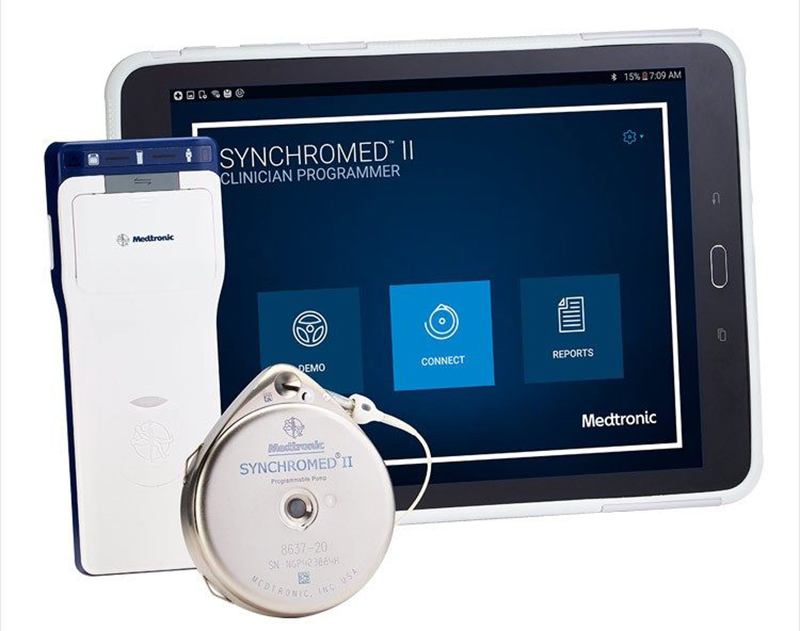Medtronic received an FDA approval for its myPTM smartphone-powered controller for the SynchroMed II drug delivery system for patients with chronic pain. This device enables patients to ease their unpredictable pain by delivering on-demand boluses, or drug doses, within therapeutic limits set by their physician.
Related How Wearable Devices Are Changing the World of Drug Delivery
The new myPTM is actually just an app installed on a Samsung J3 smartphone. The smartphone wirelessly interfaces with the SynchroMed II, an implantable drug pump, to deliver long-term pain relief at lower doses and with fewer side effects compared to oral pain medications and may allow some patients to stop using systemic opioids. Personalization of the therapy gives patients the ability to alleviate unpredictable pain and may further reduce the need for oral opioids, said a press release.
“Pain is very personal and can be unpredictable. myPTM is a simple, easy-to-use device that allows my patients to personalize their treatment based on their day-to-day needs,” said John A. Hatheway, M.D., owner and provider at Northwest Pain Care in Spokane, Washington. “Enabling patients to adjust their treatment provides them with some independence to control their pain and gives me confidence knowing that they are getting pain relief without oral opioids. The Medtronic pain pump and myPTM are powerful tools to safely treat chronic pain including intractable cancer pain.”
Using the app, healthcare providers can set daily therapeutic doses and allow for on-demand bolusing, or drug delivery, within pre-established limits. All the drug delivery events are saved and can be tracked within the app. If the drug delivery reaches the daily limit, patient is not able to dose again until the next day.
“Samsung and Medtronic have partnered to offer an innovative solution for patients with chronic pain,” said Dr. David Rhew, chief medical officer, vice president and general manager for Enterprise (B2B) Healthcare, Samsung Electronics America. “The ability to directly manage one’s medical condition from a smartphone device is ground breaking and changes the way we think about the personalization of care.”
Targeted Drug Delivery against Opioid Epidemic
Misuse of oral opioid is a significant problem. Every day, more than 115 people in the United States die after overdosing on opioids. The misuse of and addiction to opioids – including prescription pain – is a serious national crisis that affects public health as well as social and economic welfare. Therefore, it’s more important than ever for patients suffering from chronic pain to have access to proven alternatives. Targeted drug delivery (TDD) may enable systemic opioid reduction or elimination and may be considered as an alternative to oral treatment for chronic pain.













